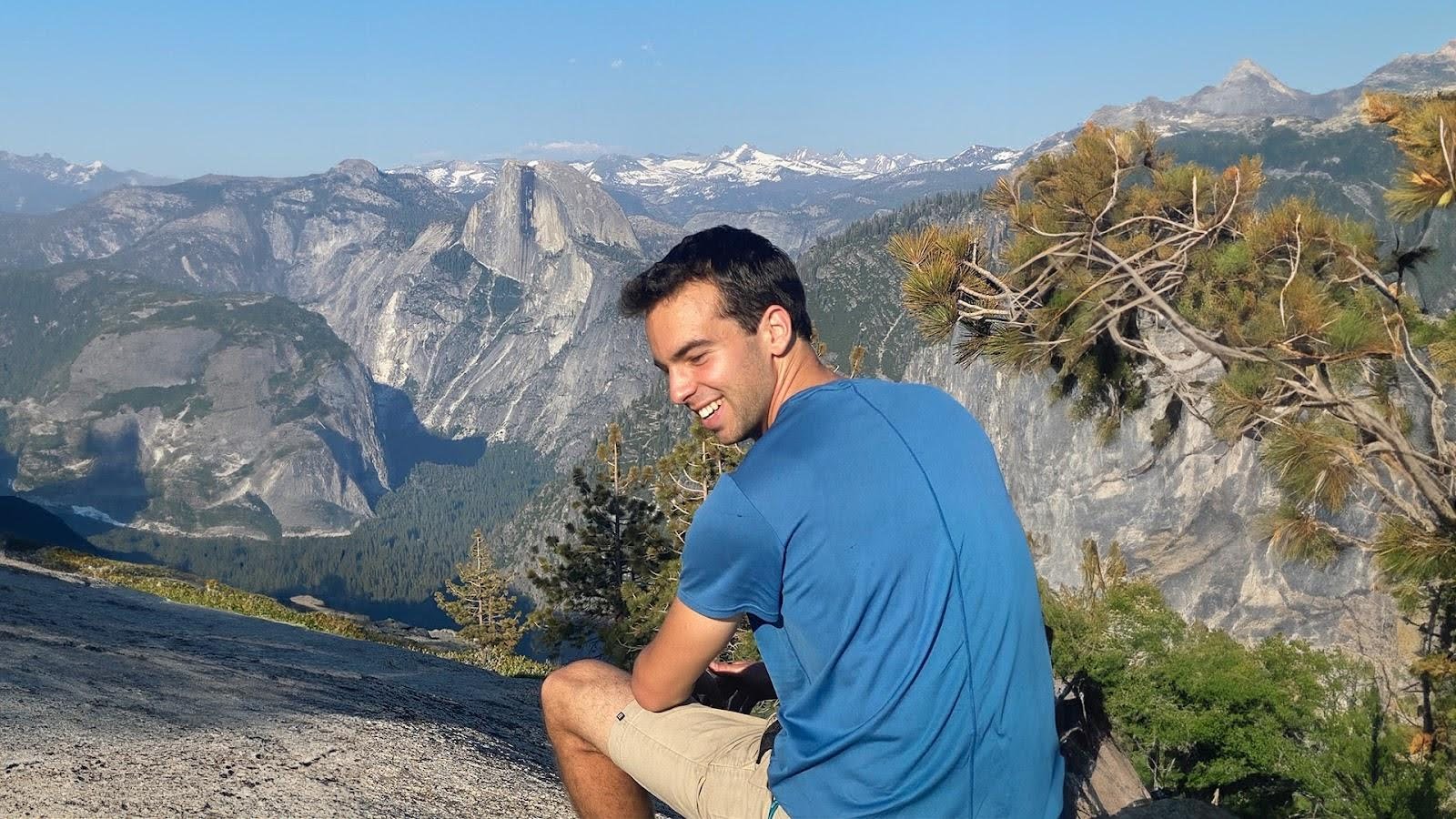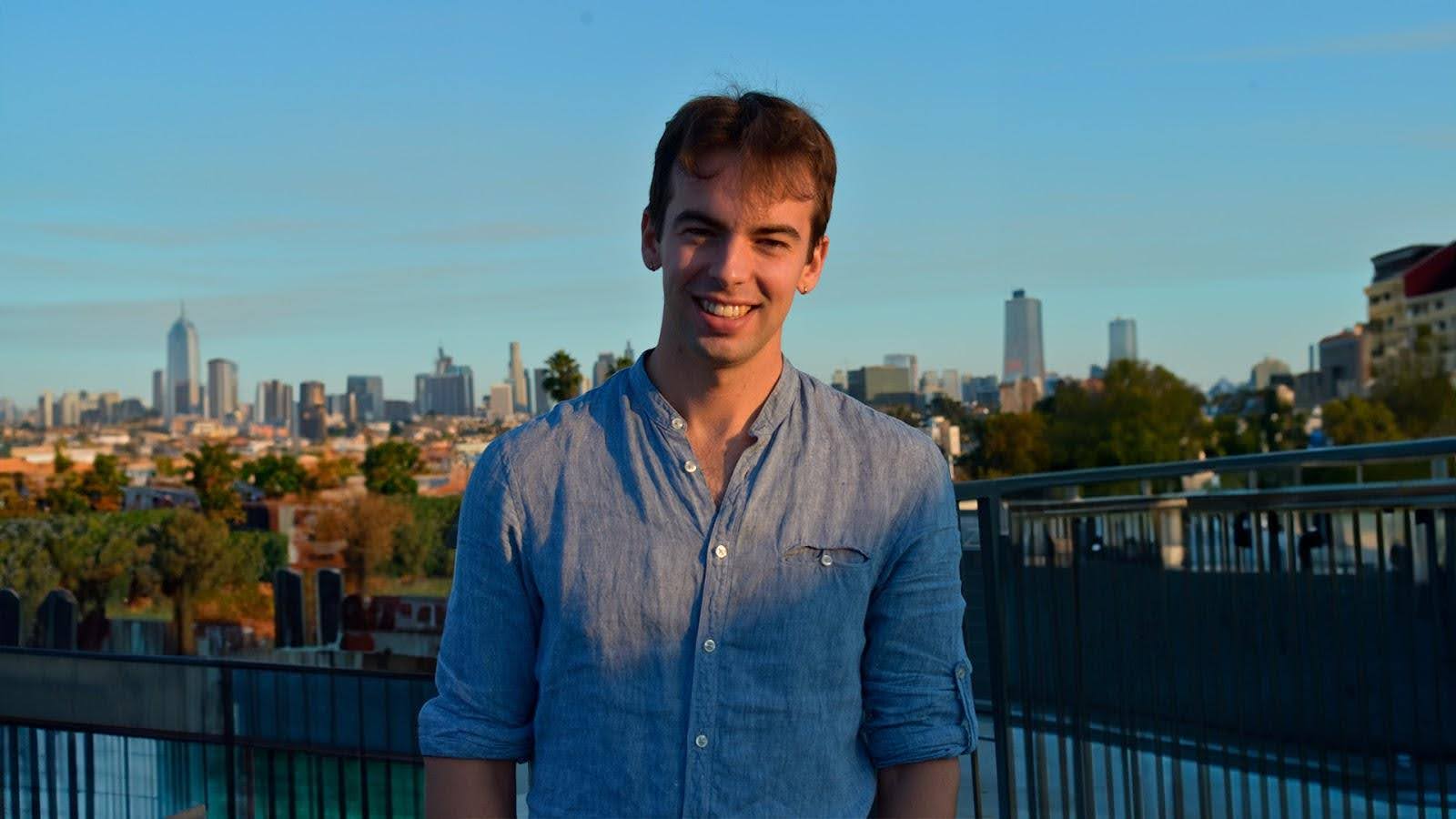By: Joshua Finley
Hollywood can be tough, especially for ambitious screenwriters. There are thousands of these aspiring creatives vying for a limited number of opportunities. Many may submit dozens or even hundreds of scripts before gaining traction in the industry. It takes a blend of creativity, perseverance and passion to make it in Hollywood or on the small screen.
Screenwriters have faced a tough landscape in recent years, navigating a host of challenges that have made their craft more demanding. The COVID-19 pandemic severely disrupted filming schedules, leading to increased production costs and lengthy delays due to safety regulations. Compounding the challenges is the rise of artificial intelligence (AI) in scriptwriting, which has sparked concerns about job security as studios explore AI-generated scripts over those penned by humans.
Canadian-born, Los Angeles resident and screenwriter Nicholas Schmid has weathered the storms that have faced creatives over the last two years and is viewed by many industry insiders as one of the rising talents to hit Tinseltown for a while.
The Origins of Inspiration
Schmid graduated from McMaster University in 2020 with a Bachelor of Arts and Science specializing in Political Science. He then went on to earn a Master of Fine Arts (MFA) in Screenwriting from the American Film Institute (AFI).
Although it’s difficult for him to determine which institution influenced him more, both have significantly shaped his creative approach.
His political science background, combined with a passion for creative writing, informs his distinctive storytelling style. From his experience editing his university magazine to crafting screenplays, Schmid has refined his skill in weaving complex themes into engaging narratives.
Says Schmid, “It’s an exciting time to be in screenwriting. The landscape has changed. You have streaming services that are reshaping how people access and enjoy film, and screenwriters have to account for the differences between the channels.”
On the Fast Track

Nicholas Schmid is making a name for himself in the screenwriting world, and his adaptability and collaborative spirit are key to his success. “I’ve found that listening to other creative voices is essential. You don’t want to hold your material sacred and resist changes. If you do, you’re in real danger of not seeing that work produced. The key to success is having an open mind and embracing collaboration.”
Schmid’s willingness to adapt has led to fruitful collaborations with prominent industry professionals. His goal is straightforward: he’d rather see five of his films produced, even if it means tweaking them to fit studio requirements, as long as each project maintains his unique voice.
Schmid has garnered attention from Academy members like Jay Roach, director of Austin Powers, Bombshell, and Meet the Parents, and Oscar-nominated screenwriter and producer Anna Thomas (Frida, El Norte). He’s also on the radar of major television and film production companies across the U.S. His approach has not only attracted the interest of industry heavyweights but has also lined his shelves with awards such as:
- Feature Winner of the 2024 Screencraft Action and Adventure Competition for the script Back to Vienna.
- Quarterfinalist in the 2024 Titan Awards for Koi
- Gold Award for Drama at the 2023 PAGE International Screenwriting Awards for HareTop 50 Semifinalist in the 2023 Academy Nicholl Fellowship for Hare
- Semifinalist in the 2023 Austin Film Festival Drama Feature category for Hare
- Second Round in the 2023 Austin Film Festival Drama Teleplay Pilot competition for Spill
- Co-writer of the short film Re-Entry, winner of the 2023 $25,000 Sloan Production Grant
“It’s a cliche that to succeed as a screenwriter you need to be in the right place, at the right time, but that’s only half the story. You need to be passionate about what you do, but mentoring is also important. Not only does it allow you to hone your craft, but it can also open doors,” comments Schmid.
The American Tapestry

For Schmid, the idea of America as a cultural melting pot is central to his approach to developing scripts. “Too many people have dismissed this and overlooked what makes it such an enduring concept. The U.S. is a tapestry woven from many different cultures, with people from a myriad of socio-economic backgrounds. The complexities of this tapestry supercharge creativity and allow screenwriters to explore universal themes. While America is unique in some ways, the hopes, dreams, and fears its cinemagoers experience are shared across the globe.”
Even while commenting on the challenges faced by ordinary people, Schmid has not lost sight of why audiences enjoy the cinematic experience.
“I believe that people are more receptive to important messages when they are integrated into an entertaining narrative, rather than feeling like they’re being lectured,” Schmid says. “The key challenge is to convey something meaningful while maintaining their interest. I aim to craft stories that are thought-provoking while also ensuring audiences enjoy their experience, without being bludgeoned by heavy-handed moral messages.”
Schmid on AI
Screenwriters are feeling the heat from the rise of AI, but they’re finding ways to cope. Many are leaning into their unique storytelling abilities and human perspectives, which AI just can’t replicate. Recent strikes, like those by The Writers Guild of America (WGA), show that writers are rallying to ensure their creativity is valued and protected in contracts.
It’s an ongoing conversation about how tech fits into the creative process, and writers are determined to make their voices heard. Schmid takes the view that AI cannot mimic the insights of human writers.
“AI is a disruptive force, and not just for screenwriters – many creative people are concerned. However, AI can’t create an emotional connection that resonates with audiences. People prefer stories crafted by humans. Great storytelling is rooted in empathy. Since AI can’t feel emotions and relies on examples of existing work to generate outputs, it often results in scripts that are derivative and lack depth,” says Schmid.
To gain deeper insights into Nicholas Schmid’s creative process and the key factors contributing to his success in screenwriting, check out his LinkedIn page for more information.
Published by: Josh Tatunay







